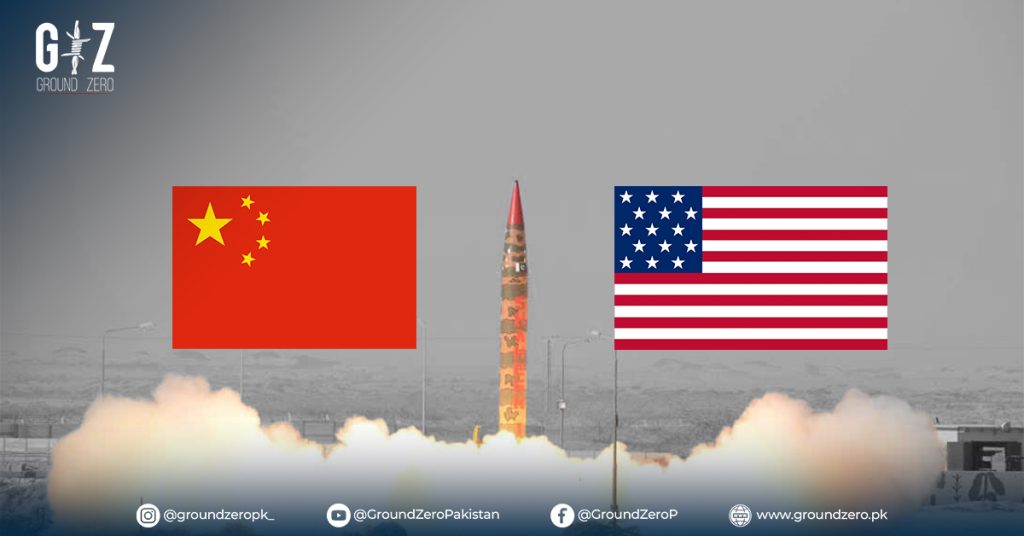U.S. Sanctions on Missile Technology Transfer to Pakistan: A Historical Perspective
The U.S. Department of State has recently sanctioned five entities and one individual for transferring missile technology to Pakistan. Among these, three China-based firms were involved in supplying missile components, including equipment for Pakistan’s Shaheen-3 and Ababeel missile systems. While China’s embassy condemned these sanctions as “unilateral” and lacking UN endorsement, Pakistan’s Foreign Office is still evaluating the situation. This action reflects a consistent U.S. policy against missile proliferation, rooted in a historical context of nonproliferation efforts. For more updates, visit our Pakistan News section.
Historical Perspective on U.S. Sanctions and Missile Nonproliferation
The U.S. has long been a key player in the global effort to prevent missile technology proliferation, particularly in South Asia. The roots of this policy trace back to the Missile Technology Control Regime (MTCR), established in 1987. The MTCR is a voluntary association of countries that aims to restrict the spread of missile and unmanned aerial vehicle technology capable of carrying a 500 kg payload for at least 300 km. The U.S. has consistently enforced sanctions against entities and individuals that violate these nonproliferation principles.
In the context of Pakistan, U.S. sanctions have focused on preventing the development and acquisition of ballistic missile technology. Since the 1990s, Pakistan has developed a range of missile systems, including the Shaheen and Ababeel missiles, which have drawn concern due to their potential nuclear capabilities. In response, the U.S. has frequently imposed sanctions on entities believed to be aiding Pakistan’s missile program. For instance, in 2003, the U.S. sanctioned Khan Research Laboratories (KRL), Pakistan’s primary missile development facility, citing evidence of missile technology procurement from North Korea.
China’s Role in Pakistan’s Missile Development
China’s involvement in Pakistan’s missile program has been a significant factor in the U.S.’s nonproliferation strategy. Reports of Chinese firms supplying missile technology and components to Pakistan have surfaced repeatedly over the past few decades. A 2013 report by the Carnegie Endowment for International Peace highlighted that China has been a crucial partner in Pakistan’s missile development, providing both technology and expertise.
In recent years, the U.S. has increased its scrutiny of Chinese entities believed to be facilitating Pakistan’s missile capabilities. The latest sanctions against three China-based firms for supplying missile equipment to Pakistan are consistent with this pattern. China’s continued support for Pakistan’s missile program remains a critical point of contention in U.S.-China relations, especially regarding strategic stability in South Asia.
Implications of U.S. Sanctions on Pakistan’s Missile Program
The U.S. sanctions against entities involved in transferring missile technology to Pakistan have significant implications for regional security. Pakistan’s missile development has accelerated since the early 2000s, leading to advancements in both its short-range and intermediate-range missile capabilities. These developments have raised concerns over an arms race in South Asia, particularly given the strategic rivalry between Pakistan and India. The U.S. aims to curb this trend by targeting supply chains that enable missile proliferation. For more context on these developments, see Arms Control Association’s report.
Pakistan’s Response and Future Outlook
Pakistan’s response to the recent sanctions has been cautious, with the Foreign Office stating that it is still assessing the situation. Historically, Pakistan has defended its missile program as essential for maintaining credible deterrence against regional threats. The country is unlikely to halt its missile development, given its security dynamics with India. However, U.S. sanctions could complicate its efforts to procure advanced missile technology from foreign suppliers, particularly those in China.
Global Nonproliferation Efforts and U.S. Policy
The U.S. remains committed to halting missile proliferation globally. The latest sanctions are part of a broader strategy to enforce international norms against the transfer of missile technology. Washington’s stance aligns with its goal of maintaining regional stability and preventing the escalation of nuclear capabilities in volatile regions. Learn more about these efforts in The Diplomat’s analysis.


